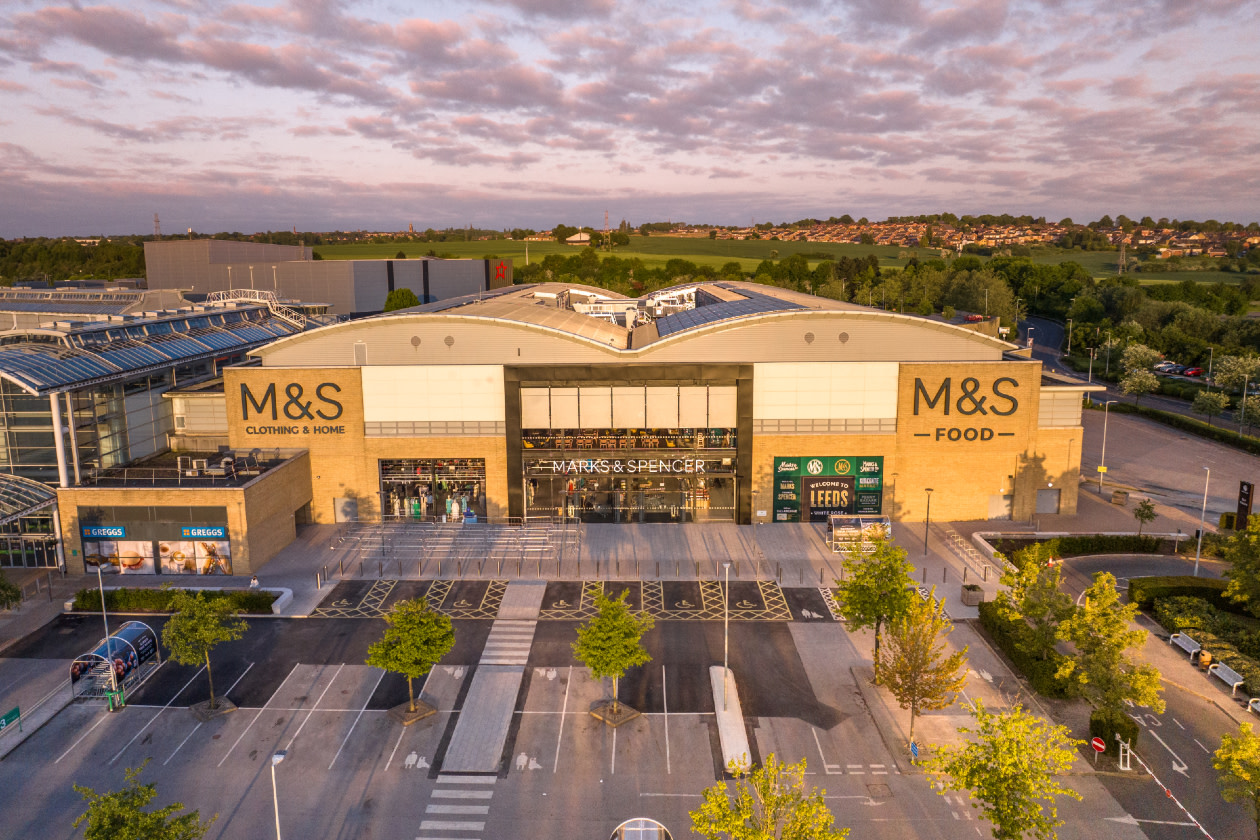Marks & Spencer’s full-year sales rose 6.1% to £13.9bn, driven by Food and Fashion, Home & Beauty sales growth of 8.7% and 3.5% respectively. Both divisions grew market share in the period.
Underlying pre-tax profits grew by 22.2% to £876mn (consensus: £840mn). This was helped by top line growth and structural cost-cutting initiatives which together more than offset operating cost inflation.
Free cash flow was broadly flat at £410mn. Net debt improved from £2.2bn to £1.8bn.
Since year-end, a cyber-attack has impacted operations and led to a pause of online shopping in the Fashion, Home & Beauty division. Disruption is expected to continue into July and cost the group around £300mn, before insurance and mitigating trading actions.
No full-year guidance has been given.
A final dividend of 2.6p per share was announced, taking the full-year total to 3.6p, up 20%.
The shares fell 2.5% in early trading.
Our view
Marks & Spencer delivered another strong set of full-year results. But the improved performance was overshadowed by an ongoing cyber-attack, which has completely stopped online orders in the Fashion, Home & Beauty division in the new financial year. M&S expects the disruption to continue into July, and until everything’s back up and running, it’s likely to weigh on investor sentiment.
The cyber-attack looks set to translate to a roughly £300mn hit to operating profits. It’s reported that M&S has insurance in place to cover as much as £100mn of the costs, and management is looking to further soften the blow through tight cost controls and other trading actions throughout the year. But it’s too early to assess the extent of any potential longer-term reputational damage.
Back to underlying performance and demand for M&S food remains robust, with increased volumes driving growth. Operational changes and efficiencies are delivering cost savings, which are being used to keep food prices down. This is helping to attract more families, who on average spend more on each shop, allowing M&S to scoop up a greater share of the nation’s weekly food budget.
Sales growth in the Fashion, Home & Beauty division reflects improved customer perceptions of value, quality, and style. That’s by no means an easy feat, and a key reason for M&S being able to sell more than 80% of clothes at full price at the last count, far higher than many of its rivals.
M&S's joint venture with Ocado remains loss-making. There’s still potential to significantly improve productivity and revenue, but while losses have narrowed, we remain cautious about when this progress will come. The disagreement between the two parties over payments for hitting (or missing) certain performance targets remains up in the air. Tension in a business partnership is far from ideal.
Operational and strategic improvements mean the business is healthier than it has been in some time. Enhanced cash generation and a robust balance sheet have enabled a continued reduction in net debt. There’s a prospective dividend yield of 2.1% on offer, but as always, no dividends can be guaranteed.
While the cyber-attack will hurt this year’s performance, the bigger picture needs to be kept in mind. It’s likely a one-off event, and the underlying business is healthy. The ongoing negative headlines have caused the valuation to fall in recent weeks, and it now sits towards the bottom end of its peers, which doesn’t look too demanding in our eyes given the strong growth in food. But competition will remain extremely tough, and volatility in the near term can't be ruled out.
Environmental, social and governance (ESG) risk
The food and beverage industry tends to be medium-risk in terms of ESG though some segments like agriculture, tobacco and spirits fall into the high-risk category. Product governance is a key risk industry-wide, especially in areas with strict quality and safety requirements. Labour relations and supply chain management are also industry-wide risks, with other issues varying by sub-sector.
According to Sustainalytics, Marks & Spencer’s management of ESG risk is strong.
The group plans to become a net zero business by 2040, with scope 1, 2, and 3 emissions targets in place. The addition of doors and panels on store refrigeration devices is a critical step towards increasing energy efficiency. However, there’s a reluctance to put an obstacle between customers and their products, especially when it’s not commonplace in the market. Product governance is also weak, with a lack of disclosure and no formal policy on the issue in place. The 2025 cyber-attack raises some questions around data privacy.
Marks & Spencer key facts
All ratios are sourced from LSEG Datastream, based on previous day’s closing values. Please remember yields are variable and not a reliable indicator of future income. Keep in mind key figures shouldn’t be looked at on their own – it’s important to understand the big picture.
This article is not advice or a recommendation to buy, sell or hold any investment.No view is given on the present or future value or price of any investment, and investors should form their own view on any proposed investment.This article has not been prepared in accordance with legal requirements designed to promote the independence of investment research and is considered a marketing communication.Non - independent research is not subject to FCA rules prohibiting dealing ahead of research, however HL has put controls in place(including dealing restrictions, physical and information barriers) to manage potential conflicts of interest presented by such dealing.Please see our full non - independent research disclosure for more information.


